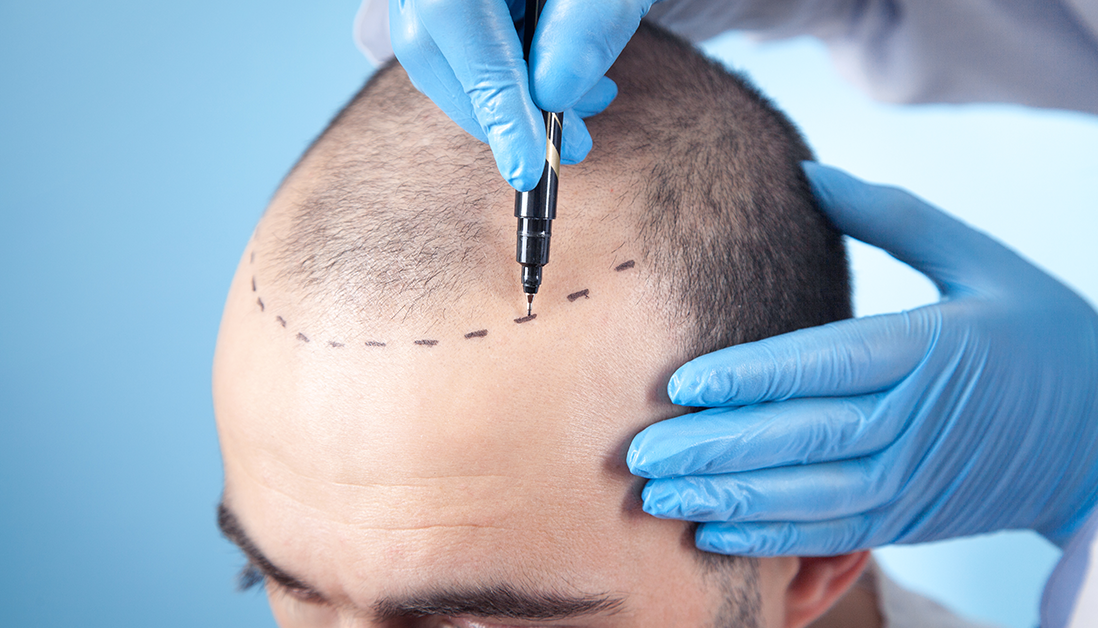The Growing Popularity of Hair Transplants in London
With the increasing prevalence of hair loss issues, hair transplants have become a sought-after solution for individuals looking to restore their hair and regain their confidence. In London, specifically, the demand for hair transplant services has risen significantly. If you are considering a hair transplant in London, it is crucial to understand the importance of choosing the right hair transplant in London that can deliver optimal results tailored to your needs and expectations.
Factors to Consider When Choosing a Hair Transplant in London
When it comes to selecting a hair transplant clinic in London, several factors should be taken into account to ensure you make an informed decision. Here are the key considerations that will help you choose the right hair transplant in London and achieve the desired outcome.
Reputation and Experience of the Clinic in London
To begin your search, delve into the reputation and experience of the hair transplant clinics you are considering. Look for clinics with a proven track record of successful procedures and satisfied patients. Read online reviews, testimonials, and ratings to get a sense of the clinic’s reputation. Additionally, check if the clinic has been recognized or accredited by reputable organizations in the field.
Researching the Clinic’s Track Record
Dig deeper into the clinic’s track record by researching their past hair transplant procedures. Look for before-and-after photos of previous patients to evaluate the quality of their work. A reputable clinic will be transparent about their results and should be able to provide visual evidence of successful outcomes.
Assessing the Surgeon’s Expertise and Qualifications
The expertise and qualifications of the surgeon performing the hair transplant are crucial factors. Ensure that the surgeon is experienced in performing hair transplant procedures and has the necessary qualifications and certifications. A skilled surgeon will have a thorough understanding of different hair restoration techniques and will be able to advise you on the most suitable approach for your specific condition.
Techniques and Technology Used For Hair Transplants in London
Hair transplant techniques and technology have evolved significantly, offering patients more options for achieving natural-looking results. Understanding these techniques can help you make an informed decision about the clinic that aligns with your expectations.
Follicular Unit Extraction (FUE)
Follicular Unit Extraction (FUE) is a popular technique that involves individually extracting hair follicles from the donor area and implanting them into the recipient area. FUE is known for its precision and minimal scarring, making it a preferred choice for many patients.
Direct Hair Implantation (DHI)
Direct Hair Implantation (DHI) is an advanced technique that uses a specialized tool to extract and implant hair follicles simultaneously. This technique ensures a higher survival rate for the transplanted grafts and allows for precise control over the direction and angle of hair growth.
Robotic Hair Transplantation
Robotic hair transplantation involves the use of artificial intelligence and robotic technology to assist in the extraction and placement of hair follicles. This innovative approach enhances the precision and speed of the procedure, resulting in more consistent and accurate results.
Patient Testimonials and Before/After Photos
When researching hair transplant clinics in London, take the time to review patient testimonials and before-and-after photos. Real-life experiences and visual evidence can give you valuable insights into the clinic’s capabilities and the quality of their work. Pay attention to patients with similar hair loss patterns or conditions to yours to gauge the clinic’s ability to address your specific needs.
Consultation and Personalised Treatment Plans
A reputable hair transplant clinic will prioritise personalised care and provide comprehensive consultations. During the consultation, the surgeon should evaluate your hair loss pattern, assess your donor area, and discuss the best treatment options for you. They should also explain the expected results, potential risks, and any post-operative care required. A thorough consultation will allow you to have realistic expectations and make an informed decision about the procedure.
Post-Operative Care and Support
The quality of post-operative care and support provided by the clinic is essential for a smooth recovery and successful outcome. Inquire about the post-operative care instructions and follow-up appointments offered by the clinic. A reputable clinic will provide detailed guidance on how to care for the transplanted area, manage any discomfort or swelling, and ensure proper healing. Ongoing support and follow-up appointments will allow the surgeon to monitor your progress and address any concerns or questions you may have.
Understanding the Hair Transplant Process
To have a better understanding of what to expect during a hair transplant procedure, familiarise yourself with the various stages involved.
Initial Consultation and Evaluation
The initial consultation serves as an opportunity for the surgeon to evaluate your hair loss condition, assess your candidacy for a hair transplant, and discuss your goals and expectations. They will examine your scalp, discuss your medical history, and determine the appropriate hair restoration technique for you.
Preparing for the Procedure
Before the hair transplant procedure, you may be advised to avoid certain medications or supplements that can interfere with the surgery. The surgeon will provide specific instructions on how to prepare for the procedure, which may include refraining from alcohol or tobacco consumption and arranging for transportation to and from the clinic on the day of the surgery.
The Day of the Hair Transplant Surgery
On the day of the hair transplant surgery, several steps will be followed to ensure a successful procedure.
Local Anesthesia and Donor Hair Extraction
The surgeon will administer local anesthesia to numb the donor area, ensuring a comfortable experience. Depending on the chosen technique, hair follicles will be carefully extracted from the donor area, typically located at the back or sides of the scalp. The extraction process should be performed with precision to minimise any potential damage to the donor follicles.
Graft Preparation and Implantation
Once the hair follicles are extracted, they will be meticulously prepared for implantation. Tiny incisions will be made in the recipient area, and the grafts will be placed in these incisions following the natural hair growth pattern. The surgeon’s skill and attention to detail are crucial at this stage to achieve a natural and aesthetically pleasing result.
Recovery and Healing
After the hair transplant surgery, proper care and attention during the recovery phase are essential for optimal healing and the best possible outcome.
Managing Discomfort and Potential Side Effects
It is common to experience some discomfort, swelling, and mild soreness in the treated areas following the procedure. The clinic will provide detailed instructions on how to manage these side effects, which may include prescribed medications or topical treatments. Following these guidelines will help minimise any temporary discomfort.
Follow-up Appointments and Check-ups
The recovery process varies for each individual, but typically, the transplanted hair follicles will start to shed within a few weeks. New hair growth should begin within a few months, and visible results can be expected within six to twelve months. Regular follow-up appointments with the clinic will allow the surgeon to monitor your progress, address any concerns, and provide guidance on post-transplant care.
Benefits and Risks of Hair Transplantation
Before undergoing a hair transplant in London, it is crucial to weigh the benefits against the potential risks and considerations associated with the procedure.
Advantages of Hair Transplants
Hair transplants offer several advantages for individuals seeking a permanent and natural-looking solution to hair loss.
Permanent and Natural-looking Results
Hair transplants provide a long-lasting solution, as the transplanted hair follicles are resistant to the effects of Dihydrotestosterone (DHT), the hormone responsible for pattern baldness. The transplanted hair will grow naturally, blending seamlessly with your existing hair.
Increased Self-Confidence and Improved Appearance
A successful hair transplant can significantly enhance your self-confidence and improve your overall appearance. Restoring a full head of hair can positively impact your self-esteem and allow you to feel more comfortable and confident in social and professional settings.
No Ongoing Maintenance
Unlike temporary solutions such as wigs or hairpieces, a hair transplant requires no ongoing maintenance or special care. The transplanted hair can be treated and styled just like your natural hair, including washing, cutting, and coloring.
Potential Risks and Considerations
While hair transplants are generally safe and effective, there are potential risks and considerations to be aware of.
Infection and Scarring
As with any surgical procedure, there is a risk of infection and scarring. However, by choosing a reputable clinic and following proper post-operative care instructions, the risk can be minimised.
Shock Loss and Temporary Shedding
After the transplant, it is common for the transplanted hair to go through a shedding phase known as shock loss. This is a temporary process, and new hair growth will occur within a few months.
Unsatisfactory Results or Overharvesting
In some cases, the final results of a hair transplant may not meet the patient’s expectations. It is essential to have realistic expectations and communicate openly with the surgeon about your desired outcome. Overharvesting, which refers to excessive extraction of hair follicles, can also lead to an unnatural appearance or inadequate donor supply for future procedures.
Cost Considerations and Financing Options For a Hair Transplant in London
Understanding the cost of a hair transplant in London and exploring financing options can help you plan for the procedure and make it more affordable.
Understanding the Cost of Hair Transplant in London
The cost of a hair transplant can vary depending on several factors, including the extent of hair loss, the number of grafts required, the chosen technique, and the reputation of the clinic. It is important to obtain a detailed cost breakdown during your consultation to avoid any unexpected expenses.
Factors Affecting the Price
Factors that can influence the price of a hair transplant include the complexity of the procedure, the expertise and reputation of the surgeon, the location of the clinic, and the additional services or facilities provided.
Financing and Payment Plans
Many hair transplant clinics offer financing options or payment plans to help make the procedure more affordable. You can discuss these options with the clinic’s administrative staff or inquire about third-party financing companies that specialise in medical procedures.
Frequently Asked Questions about Hair Transplants in London
Here are answers to some commonly asked questions about hair transplants in London:
Who Is a Suitable Candidate for a Hair Transplant?
Hair transplant candidates are typically individuals with stable hair loss patterns and sufficient donor hair supply. The suitability for a hair transplant can be determined during a consultation with a qualified surgeon.
How Long Does the Hair Transplant Procedure Take?
The duration of a hair transplant procedure depends on the number of grafts needed. It can range from a few hours to a full day. Complex cases or extensive procedures may require multiple sessions.
What Is the Recovery Time?
The initial recovery period after a hair transplant is usually around 7 to 10 days when the scabs and redness gradually subside. However, complete hair growth and final results can take several months.
Can Women Undergo Hair Transplantation?
Yes, women can also benefit from hair transplant procedures, especially if they have female pattern hair loss or other hair loss conditions amenable to transplantation.
Are Hair Transplants Permanent?
Yes, hair transplants are considered a permanent solution as the transplanted hair follicles are resistant to DHT and should continue to grow for a lifetime.
Will the Transplanted Hair Look Natural?
When performed by a skilled surgeon using modern techniques, the transplanted hair should blend seamlessly with your existing hair, resulting in a natural and undetectable appearance. The angle, direction, and density of the transplanted hair will be carefully designed to mimic your natural hair growth pattern.
Are There Any Alternatives to Hair Transplants?
While hair transplants are the most effective and long-lasting solution for hair loss, there are alternative treatments available. These include non-surgical options such as medication (e.g., minoxidil, finasteride), low-level laser therapy, and scalp micropigmentation. However, it’s important to consult with a qualified professional to determine the most suitable option for your specific condition and goals.



